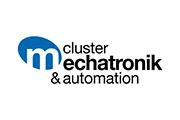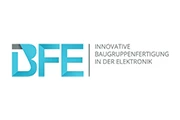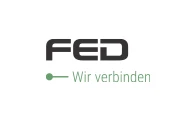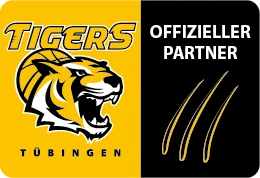For more than 15 years, the digital EUTECT modular system has presented the entire range of modules that make up EUTECT GmbH's machine solutions for selective soldering processes.
It is the task that determines the choice of the optimum connection, automation or software module. We offer an extensive, constantly evolving modular system for this purpose.
From our selective soldering technology process modules, we select the modules that are best suited to the task in terms of process technology and cost-effectiveness and combine them into proven stand-alone, rotary transfer or inline production concepts for complete solutions. The EUTECT modular system shows that individual modules or free combinations can often be used to achieve a lean, customised solution from proven components for the task of a customer product.
Our technologically comprehensive and innovative EUTECT technical centre is available for the optimal solution through evaluation or the production-ready manufacture of A-B-C samples.
E-cell

E-cell
The scalable production cells combine precision with versatile cell modularity. Each individual cell can be customised by 300 mm in width and length. The cells have a high degree of rigidity and enable maximum precision in the soldering process and automation.

E-ssembly for XPlanar automation solutions
E-ssembly is a completely new "line" production concept characterised by maximum flexibility, dynamics and sustainability.
Kinematics modules

XPlanar
The use of the XPlanar from Beckhoff is characterised by maximum flexibility, dynamics and sustainability.

Z-X-Y-D lifting module
In addition to the travel range in X, Y and Z, a module, such as a soldering module, can rotate on the lift table.

Inline transport system
The inline transport system can be used to transport assemblies or workpiece carriers through the process cell.

Rotary indexing table
The rotary indexing table enables simultaneous process machining with simultaneous assembly transport.

X-Y-Z axis system
With the X-Y-Z axis system, all positions on the assembly can be approached in two-dimensional space.

Robots
Up to two 6-axis robots can be integrated in a production cell on the floor or overhead.
Loading and unloading modules

Robot/Cobot
Both robots and cobots can be used to load and unload the production cell.

Roller conveyor
The roller conveyor can be used to transport workpiece carriers (WT) loaded with assemblies into the process cell.

Manual rotary input
The manual rotary input is a manual loading and unloading module.
Carrier modules

Satellite carrier
Due to ever smaller and more flexible robots, which are used in a wide variety of cell systems for a wide range of applications, the issue of component handling is becoming increasingly important.

Carrier for inline conveyor system
The carrier for the inline conveyor system can transport different workpiece carriers and move them within an inline production process.

Base holder for 3D beams
The holder for 3D beams is based on a frame with or without a motor that can rotate the assembly holder clamped in the frame.

Specific carrier with hold-down device
Specific carriers are customised to the assembly and the soldering process to be carried out. This means that each carrier is individually designed to guarantee an optimal soldering process.

Universal mount
Workpiece carriers or other specific carriers can be picked up and transported with the universal holder. The universal holder can be mounted on an X-Y-Z axis, for example.
Mask modules

Spring-loaded titanium mask
The customer only gets real process stability and benefits from selective soldering or soldering with mini wave and mask technology when the solder nozzle has been developed and manufactured in relation to the mask.

Solder mask insert for workpiece carriers
Solder mask inserts can be used to cover defined areas of the PCBs for optimum and reproducible soldering results.

Solder mask insert for robot gripper
Solder mask inserts can be used to cover areas of the PCBs for optimum and reproducible soldering results.

Titanium mask inlay
Titanium mask inlays for selective soldering protect defined areas of the PCB and only allow selected components to be soldered. Made from heat-resistant titanium, they improve the precision and quality of soldering and are durable and reusable.
Flux modules

SF: Spray fluxing
Defined areas on the assembly can be wetted with a flux using a spray module.

PF2: Brush fluxing
Brush fluxing enables very precise preparation of two process areas with one comprehensive application.

PF1: Brush fluxing
Brush fluxing enables very precise preparation of the process area with a full-surface application.

IF: Injection fluxes
The non-contact, cycle time-optimised flux application using an injector flux head can be carried out from all directions and is independent of the position or installation situation.

HTF: Hub diving fluxes
In lift-dip fluxing, the component to be wetted is immersed in the flux.
Preheating modules

Induction preheating module
Infrared heating is used to preheat the assembly before the soldering process.

VS-S4: Infrared radiator
The assembly can be gently preheated using infrared heat. The infrared radiator is focussed on a small area of the assembly.

VS-S2: Infrared radiator
The assembly can be gently preheated using infrared heat, which is generated by an infrared radiator that covers a large area.

VS-K matrix blower
A matrix blower is used to blow warm air to defined points underneath an assembly, preheating it.

VS-K power blower
Warm air is blown under the assembly by means of a power blower, preheating it.

VS-K convection
The assembly can be gently preheated using convection heat generated by the convection module.
Soldering modules

IW1: Mini wave soldering system
In mini wave processes, the free-flowing solder wave is created by pumping the molten solder up from a heated storage tank.

IW1-2: Mini wave soldering system
In mini wave processes, the free-flowing solder wave is created by pumping the molten solder up from a heated storage tank.

HT1: Hub dip soldering system
The lift-dip soldering system is a solder bath that enables leaded and lead-free soldering at a maximum temperature of 450°C.

IW1: Point longitudinal wave
Two IW1 modules with different nozzles are used for the point longitudinal shaft.
Solder nozzles

Point nozzle
During the soldering process, the component pin is immersed in the small solder wave that emerges from the nozzle.

Double point nozzle
The spot double nozzle is used in the mini wave soldering process, in which the liquid solder is conveyed by a pump.

Line nozzle
With the line nozzle, larger process areas can be soldered simultaneously, which optimises the overall process cycle time. The width of the solder wave is defined by the nozzle design.

Flex nozzle
The flex nozzle can be adapted to the process thanks to flexible nozzle insertion. As the position of the component to be soldered can sometimes vary depending on the customer's design, the nozzle concept must be flexible.

Hub dip-matrix soldering punch
The matrix soldering stamp is the lift-dip mechanism for the lift-dip soldering system.

Ring nozzle
With the ring nozzle, the solder flow is arranged in a circle. This means, for example, that wires arranged in a circle can be processed simultaneously, as is the case with enamelled copper wire soldering.
Wire feed modules

SWF (Sensitive Wire Feeder)
The world's only force-displacement controlled wire feeder SWF from EUTECT is a key technological requirement for piston soldering, induction soldering and laser soldering in order to make the entire soldering process reliable and reproducible.

SWF-AS: Overlay welding
The EUTECT SWF AS module is used for controlled wire feed with integrated gas flushing for build-up welding applications.

Wire feeder WF
The WF wire feeder is the unregulated version of the SWF wire feeder.

Wire feed (1.5 - 6 mm)
EUTECT also offers unregulated wire feeds for different wire thicknesses of 1.5, 3.0 and 6.0 mm. These are used, among other things, for refilling the mini wave soldering modules.
SRS modules

SRS
The Sustained Ring Soldering Module produces solder rings from standard solder wires, enabling a new cycle time-optimised, highly accurate and economically sustainable assembly soldering process.
Special connections

Thermode soldering module
In thermode soldering, also known as stirrup soldering, the heat is transferred to the component via contact. The thermode is placed on the component and the heat input is only started when the contact pressure is reached.

Piston soldering module
Generally, piston soldering is used for single-point soldering. In combination with the EUTECT automation solutions, high, consistent quality is achieved.

Induction soldering module
In non-contact induction soldering, the solder joint is heated by electromagnetic induction. Depending on the application and the materials to be heated, specific loop geometries and frequencies are required.
Laser modules

Laserknife
The use of the Laser Knife has the same process objectives as iron soldering. The heat is transferred to the component using a laser.

Laser soldering
Laser soldering with controlled wire feed is becoming more and more important due to increasing miniaturisation as well as increasing packing density and the use of a wide variety of electronic components in individual assemblies.
Process monitoring modules

JENvelt
Due to increasing miniaturisation and ever higher packing density, the demands on the individual production steps in the electronics industry are increasing.

TE: Temperature detection
For laser soldering, we use a laser with an integrated pyrometer to permanently monitor and control the heat input and store it for tracking purposes.

AOI Partner
Automatic Optical Inspection (AOI) is now the test method for quality control of assembled printed circuit boards.

BDE: Production data acquisition
With the PDA, all data relating to the machine and the process is recorded and visualised.

FSE: Flux jet detection & monitoring
Flux jet detection is used to control the amount of flux to be applied using spray or injector fluxes.
Software modules
ELMar
EUTECT Language Manager
EVA
EUTECT Verify & AOI
MaRCo
Machine Remote Control
ERWin
EUTECT Reporting Window
SaRA
Surveillance and Receipt Assisant
EMI
EUTECT Machine Interface
ERICa
EUTECT Recording Inspection Camera
ULi
User Login
MELLi
Machine Event Log List
PeteR
Parameter recovery




